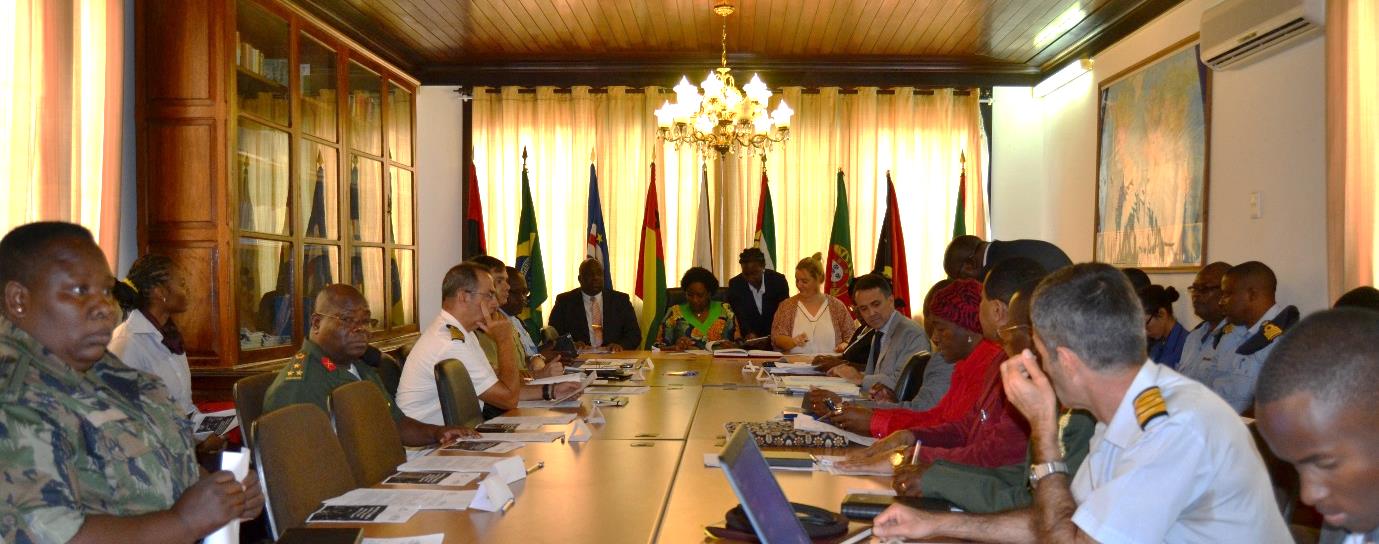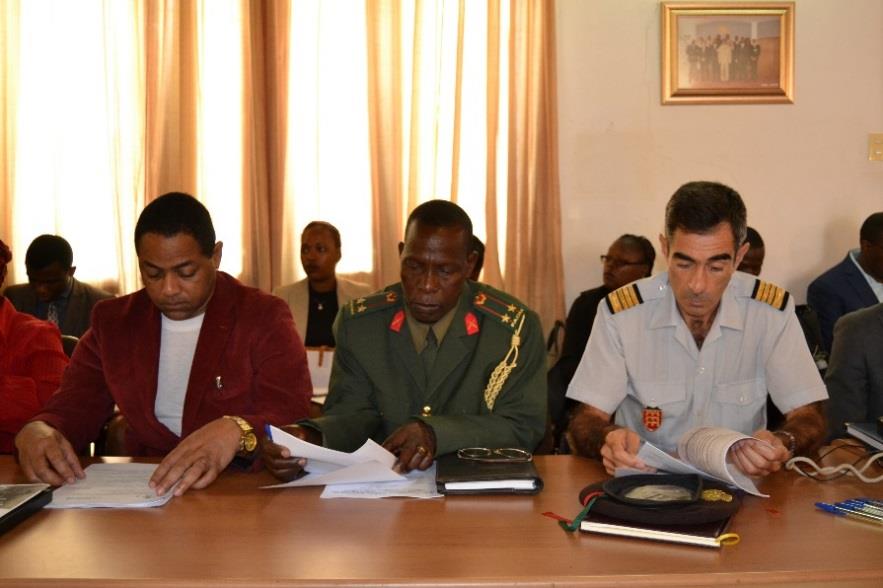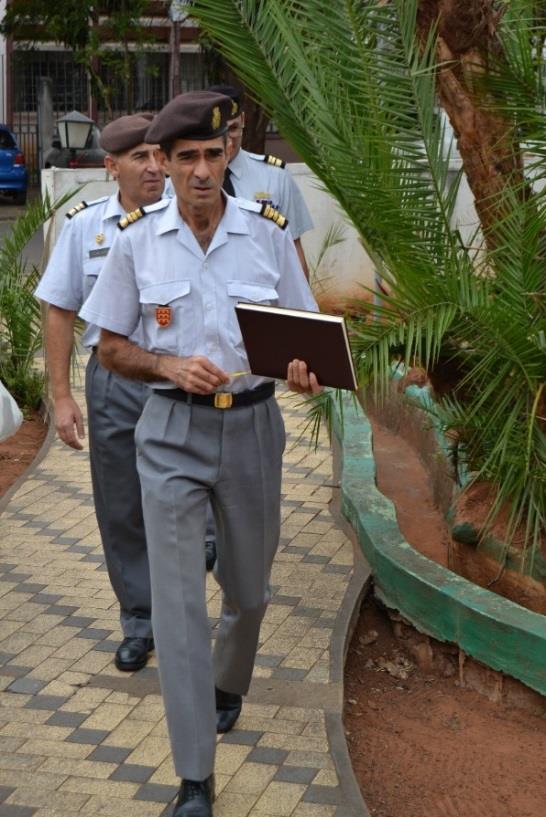UN Women promotes debate on Women, Peace and Security in meeting with the Community of Portuguese Language Countries
Date:
The event, organized by the Center for Strategic Analysis of the CPLP, the Ministry of Gender, Child and Social Action, and UN Women, took place on October 13 in Maputo. It counted on the presence of several high-level officials, such as Her Excellency the Ministry of Gender, Child and Social Action Ms. Cidália Chaúque Oliveira; the director of CPLP Mozambique Dr. Luiz de Carvalho, and UN Women Mozambique Representative Florence Raes.


During the event, representatives from the armed forces of Mozambique, Portugal, Brazil, and Angola shared discursive space with representatives from the Ministry of Gender, Ministry of Defense and academy, as well as UN Women functionaries and other gender practitioners.
The main topic of the day was UN Security Council Resolution 1325, which addresses the recurring impact of armed violence on women’s lives during armed conflicts, and the importance of women in crisis management processes, conflict resolution, peace building and reconstruction. UNSCR 1325 was also emphasized as the main international instrument for the promotion of gender equality and women’s empowerment in times of conflict.

Members of the armed forces who participated in the event the CPLP countries. Photo: UN Women/Delia Tatiana Machavela
During the event, the participants presented their analysis and points of view on the diverse implications that link gender to armed conflicts, gender based violence, and participation of women in the peace process. The subjects discussed varied from the impact of armed conflicts on mental health to statistical data on women, peace and security; from the details of the international legal framework following UNSCR 1325, to the status of its implementation in the different countries.

Civil and military participants from the CPLP analyze the report on the implementation of UNSCR 1325 in Mozambique. Photo: UN Women/Delia Tatiana Machavela
The meeting comes in a delicate moment for Mozambique, where armed violence is on the rise after continuing clashes between the government forces and the armed opposition party RENAMO, and shortly after the killing of Jeremias Pondeca, a senior RENAMO peace negotiator, in Maputo.
Despite this, the meeting did not lack constructive proposals and ideas from the participants, who engaged in a lively debate and exchanged ideas and best practices from their own countries, on how to promote the participation of women, and how to face gender based violence within and outside situations of armed conflict, a role that the defense sector can play in and outside the country.
In a sector where all processes tend to be planned, agreed and implemented by men, the meeting is a small but significant step towards the integration of the gender issues in the defense and security of the CPLP.